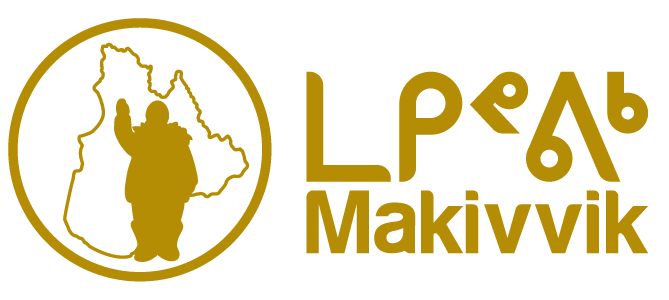
Communication, ice fishing at Tasikallak. Photo courtesy of Andrea Brazeau
Kangiqsualujjuaq’s Andrea Brazeau has been named Outstanding Youth Action Leader at the Canadian Network for Environmental Education and Communication (EECOM) 2020 Awards of Excellence.
The award is given to a youth leader or youth-led organization that has taken leadership or action with an environmental education or communication initiative.
Brazeau is currently in her fourth and final year at McGill University in Montreal, studying kindergarten and elementary education. She has worked in the north as a substitute teacher when necessary and has completed a student teaching placement in Montreal. She says she will also do her final placement in her home community.
Brazeau credits Kangiqsualujjuaq as the inspiration behind her love of teaching environmental education.
“The environment I grew up in – both consisting of the land and people – contributed to who I am as an individual. I grew up going out on the land – nature was literally on my doorsteps – so connection to the land was and still is automatic for me, as it is for any Inuk who grows up in the rich environment of Nunavik.” She says she also appreciates the people around her who inspire her to be the best and most authentic version of herself.
The written EECOM announcement states that Brazeau brings her culture into all that she does, most notably into her work as an educator. Inuit legends, throat singing and drum dancing, conversations with elders, stories of hunting and her favourite foods, and land-based programming are some elements of her teaching practice. It is through her pride and openness that she creates platforms for her students to demonstrate these same characteristics. When she’s not teaching in a classroom, she uses social media to teach people about Inuit culture and Canada’s history, according to the release.

Photo courtesy of Andrea Brazeau
Brazeau was both surprised and proud when she received the email telling her she had been chosen for this award.
“It is an honour to win an award like this, especially as an Inuk woman who is passionate about education and culture,” she says. “This recognition gives me even more pride in who I am as an Inuk woman, and furthers my desire connect and learn with the people and environment around me.”
Brazeau plans to return to teach at Ulluriaq school as an elementary school teacher in Kangiqsualujjuaq.
“As a teacher, my philosophy strongly lies in connecting with people and the environment. My goal will be to connect my students to the environment they live in. This means connecting to the land and the people in the community, like the elders,” she explains. “There is so much wealth and knowledge to be gained by these connections. To me, connecting with the people and environment is environmental education in and of itself.”
In future years, Brazeau says she would like to work for the school board at an administrative level and is also interested in working for Makivvik.
“If we want to see change in our region, Inuit representation is highly important and necessary in these higher-ranking positions. We must start taking these positions because we know what’s best for ourselves and our environment.”




